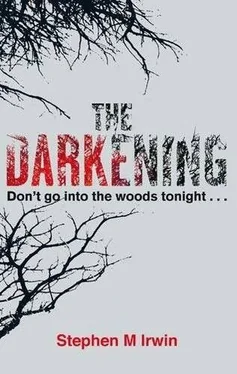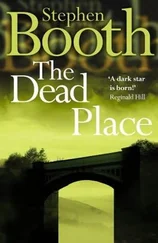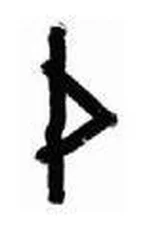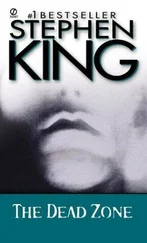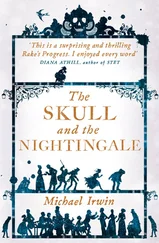Stephen Irwin - The Dead Path
Здесь есть возможность читать онлайн «Stephen Irwin - The Dead Path» весь текст электронной книги совершенно бесплатно (целиком полную версию без сокращений). В некоторых случаях можно слушать аудио, скачать через торрент в формате fb2 и присутствует краткое содержание. Жанр: Триллер, на английском языке. Описание произведения, (предисловие) а так же отзывы посетителей доступны на портале библиотеки ЛибКат.
- Название:The Dead Path
- Автор:
- Жанр:
- Год:неизвестен
- ISBN:нет данных
- Рейтинг книги:5 / 5. Голосов: 1
-
Избранное:Добавить в избранное
- Отзывы:
-
Ваша оценка:
- 100
- 1
- 2
- 3
- 4
- 5
The Dead Path: краткое содержание, описание и аннотация
Предлагаем к чтению аннотацию, описание, краткое содержание или предисловие (зависит от того, что написал сам автор книги «The Dead Path»). Если вы не нашли необходимую информацию о книге — напишите в комментариях, мы постараемся отыскать её.
The Dead Path — читать онлайн бесплатно полную книгу (весь текст) целиком
Ниже представлен текст книги, разбитый по страницам. Система сохранения места последней прочитанной страницы, позволяет с удобством читать онлайн бесплатно книгу «The Dead Path», без необходимости каждый раз заново искать на чём Вы остановились. Поставьте закладку, и сможете в любой момент перейти на страницу, на которой закончили чтение.
Интервал:
Закладка:
No one but the spiders perched high in rain-lashed branches were there to see a wave of brown water gush between the bristling trunks to drown a garden of fragrant herbs and smash against a tiny cottage. An hour later, the insistent, powerful tide sent a floating trunk like a battering ram into the cottage: the collision swept one wall clean away. With the structure breached, the waters soon took the other three walls, and the cottage was gone. A cellar beside the cottage filled first with water and then with mud, burying forever a steel box surrounded by wet ash, the mummified remains of an Aboriginal boy named Billy Fry who went missing from the Our Lady of the Rosary Orphanage in 1916, and the charred body of an impossibly old woman. One door to the cellar was carried off by the swirling waters and ended up punching a hole in the hull of a catamaran moored fifteen kilometers downstream. The other door, like the cellar itself, was drowned in black mud.
A sagging cage of wood and bone within a ring of trees floated away and broke up gradually, tossed among the living branches of yellow wood and spotted gum. Two small knives were lost forever.
One early morning revelation to the residents of the city was the reappearance of the ferry Wynard. A dizzy Lazarus, the ferry floated with her hull upturned to the thundery skies, like a turtle emerging from long hibernation. Her gray timbers threatened at every moment to sink forever, yet she bobbed downstream with the grace of a retired soprano convinced to make one final curtain call.
She passed the rain-washed glass towers of the city proper, and finally was caught by enterprising young men from the Kangaroo Point Abseiling Club, who appropriated one unpopular member’s old ropes, attached a makeshift grapple, and snagged the Wynard from the shore. They sold her carcass on eBay for almost three thousand dollars.
A s the flood waters plowed through the woods, Nicholas Close slept in his hospital bed.
He was tended in shifts by three women: firstly by Laine Boye, then by his mother, then by his sister. Suzette would wait for the nurses to leave the ward and then trace strange symbols with fragrant water on Nicholas’s forehead and over his heart. Neither Katharine nor Laine protested, just nodded and watched.
The doctors informed all three women that there was nothing gravely wrong with Nicholas’s body: it had recovered surprisingly well, although the reattached tendons of his left hand would never again close a full fist. He had, however, lost a lot of blood and the lasting risk was to his brain, which had been starved of good blood flow for a long while. Unfortunately, any damage to his brain would only be apparent if and when he woke again.
The three women watched and waited.
D etective Anne Waller visited twice.
The first time, she came alone, spoke with Nicholas’s doctor, then stood beside Katharine at his bedside. Katharine noted the way the detective’s eyes scrutinized every detail of Nicholas’s unconscious face, his hands, his heavily plastered wrist.
Finally, Waller said quietly, “I never pegged him as a suicide attempt.”
Katharine wasn’t sure if there was a question buried in the words. If there was, an answer arose by itself.
“He loved his wife very much.”
Waller kept her stern gaze on Katharine’s son for several more long seconds, then left without a word.
The next time Waller came back to the hospital, she was accompanied by a male detective. She marched straight up to Katharine and informed her that the Department of Public Prosecutions would not be pursuing any charges against her son for firearm offenses, including the shooting of Hannah Gerlic.
Katharine followed the detectives all the way to their unmarked car, quizzing them relentlessly, until Waller finally admitted that the Gerlic child insisted that Nicholas did not shoot her and she had only fuzzy recollections of how the lead pellet had gotten into her calf.
“And where’s the gun?” asked Katharine.
Waller levelled a long, discontented stare at Katharine, then nodded for the other detective to drive them away.
Katharine guessed the answer. There was no gun. The floods had taken it.
Nicholas slept.
Chapter 45
H e opened one eye at 2:13 a.m., just as the last of the flooding rain fell on the city and the clouds pulled close their coats to scurry out to sea.
He was certain he was dead. He was certain that he was lying in Quill’s cottage, waiting to enact again and again the trudge to the cellar, the walk to the ring of trees, the horror of placing Hannah in the cage of bone, and the cutting of her throat. So much blood. So wearying. But then he remembered… it was not Hannah’s throat that had been cut.
Nicholas opened his other eye. He wasn’t in the cottage. His fingers inched to his left wrist and felt the hard sleeve of plaster there. He rolled his head one way, toward the window.
Stars trembled above the subsiding river.
He rolled the other way, and saw her.
Laine was in a cot bed beside his, her face pale and lean and grimly tight, even in sleep.
He watched her a long time. Missing Cate. Exploring Laine’s face. Wondering if he was glad he was alive.
He rolled back to stare at the ceiling. There were things to be remembered. Incredible things. The sight of something awesome and terrible. But as he mined the thought, ready to expose its shape, sleep dragged at him like insistent imps. He would sleep now, and remember tomorrow.
But by dawn, his memory of the Green Man had vanished as completely as had the rain.
T he doctors conducted cognizance tests, assayed his blood, examined his urine, and decided there was no reason for him not to be discharged.
Laine helped Nicholas pack. The silence between them wasn’t uncomfortable: it was small and warm and as sad as reading the headstone of a stranger’s child.
She took him home.
As he walked from the road to the front gate and then to the front porch, his head turned this way and that. He refused to go inside and sat on the front steps, watching the street. Laine realized he was searching for Gavin’s ghost, so she left him alone.
N icholas waited on the porch outside 68 Lambeth Street for a full hour, watching workmen with shovels follow a truck up the road, scooping the gutters clear of debris.
Gavin’s ghost never showed.
Nicholas held his jaw tight and went inside to have tea with the three women.
H e sat for long hours looking out his childhood bedroom window at the streets of Tallong, trying to remember. His mother, his sister, and Laine all asked him in their different ways what had happened the night that Hannah Gerlic had slipped away from home and had been found under an SES minibus hours later.
He couldn’t remember.
Nicholas sent his gaze over denuded trees, over eroded streets half-closed with orange emergency barriers, over energy company crews rising in cherry pickers to repair power lines. That was not entirely true: there were two memories.
The first was a clear picture in his mind-solid and smooth as marble-of following Hannah’s pointing finger to the rippling waters of the gully creek and seeing rafts of small, moving things struggling to escape the dark water. But the instant he recognized the shifting masses as arachnids, the tape inside his brain ran out, and his next recollection was of waking in the hospital and seeing stars over the flooded night river.
And there was another, fragmented memory. It hardly deserved to be called that: it was more a wisp, a faint scent on the fickle air of recollection. A dream.
It was of moving. Of being carried through the woods. The air had smelled wet and thick and vivid with greenery. And a voice was speaking to him, not in words, but in a vibration that carried through his body and into his mind. What it said was unclear, but it was as primal and lustful as the thunder of the ocean, and also deathly sad and doomed. A dream.
Читать дальшеИнтервал:
Закладка:
Похожие книги на «The Dead Path»
Представляем Вашему вниманию похожие книги на «The Dead Path» списком для выбора. Мы отобрали схожую по названию и смыслу литературу в надежде предоставить читателям больше вариантов отыскать новые, интересные, ещё непрочитанные произведения.
Обсуждение, отзывы о книге «The Dead Path» и просто собственные мнения читателей. Оставьте ваши комментарии, напишите, что Вы думаете о произведении, его смысле или главных героях. Укажите что конкретно понравилось, а что нет, и почему Вы так считаете.
